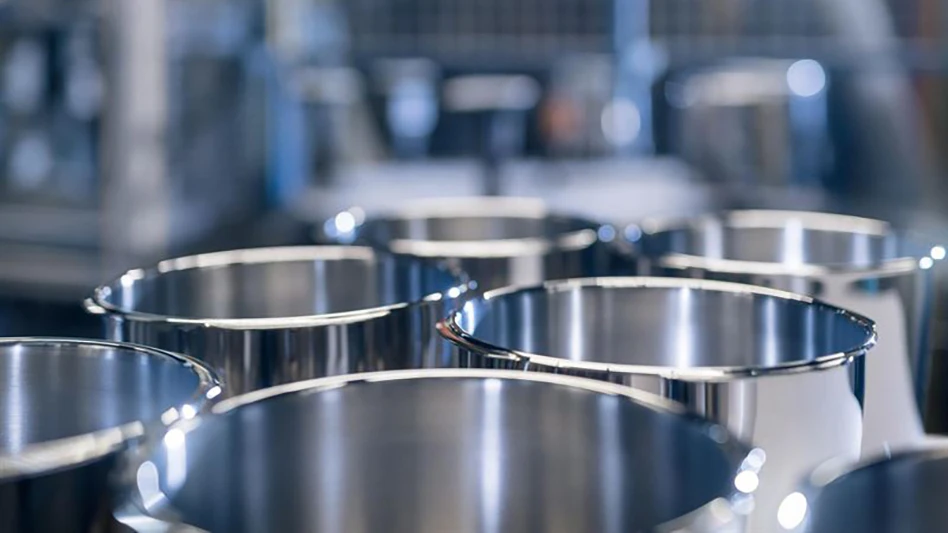
Photo courtesy of Outokumpu
Finland-based Outokumpu, which produces stainless steel and other alloys in Europe, Mexico and the United States, is supplying its Circle Green stainless steel to Germany-based cookware company Fissler.
Outokumpu says Circle Green is made with a carbon footprint that is up to 92 percent lower than the stainless steel industry average. “The collaboration supports the mutual mission of both companies to build things that last—and to show the direction of reducing emissions from the appliance industry,” Outokumpu says.
When the Finnish metals firm introduced Circle Green last year, a vice president with Outokumpu told Recycling Today, “Our recycled material content is normally at 90 percent, and in this case it was clearly even more than that—98 percent.”
“Our products are sustainable in the sense that we build them to last," Fissler Chief Marketing Officer Sven Ullrich says. "In addition, we use a very high percentage circular and recycled materials that we even increase step by step. With Circle Green we can further reduce the carbon footprint without any compromise in quality and durability. We need premium partners to produce the right quality for our customers, and with Outokumpu, we share a long partnership, sustainability targets and the same direction.”
Fissler is a family-owned company and manufacturer of premium cookware founded in 1845 by Carl Philipp Fissler in Idar-Oberstein, Germany.
“We are at the forefront of decarbonizing the steel industry, and the appliance sector is one of many where we can support our customers and make an impact,” says Niklas Wass, executive vice president with Outokumpu.
“The beauty of Circle Green is that the material is the same as conventional stainless steel, with all the same characteristics,” Wass adds. “In addition, it has the lowest possible carbon footprint in the industry because of the way we produce it. We are proud to work with partners like Fissler who show the example toward a low-emission future.”
Latest from Recycling Today
- BMW Group, Encory launch 'direct recycling’ of batteries
- Loom Carbon, RTI International partner to scale textile recycling technology
- Goodwill Industries of West Michigan, American Glass Mosaics partner to divert glass from landfill
- CARI forms federal advocacy partnership
- Monthly packaging papers shipments down in November
- STEEL Act aims to enhance trade enforcement to prevent dumping of steel in the US
- San Francisco schools introduce compostable lunch trays
- Aduro graduates from Shell GameChanger program





